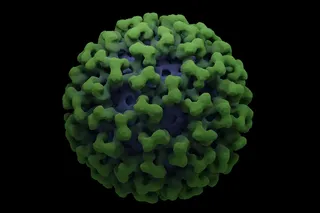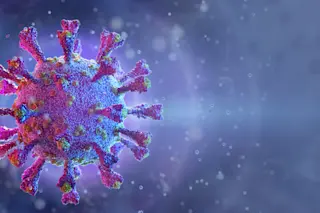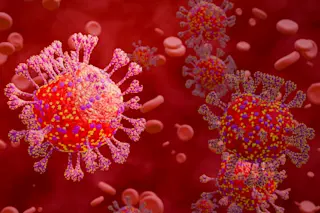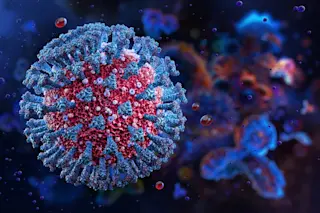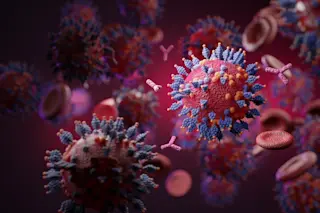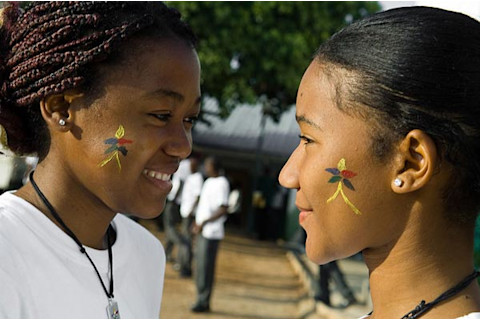
What's the News: Researchers have embarked upon an experiment that, if not for the tragic circumstances of the African AIDS epidemic, might be familiar to many parents: paying kids to follow the rules. South African schoolchildren 13 years and older in the study could earn up to $400 if they manage to stay HIV-free for 24 months. In South Africa, which has the most HIV/AIDS-infected people of any country in the world, more than 17 percent of the population has HIV, with girls at especially high risk. How the Heck:
The experiment began last September, when the Centre for the AIDS Programme of Research in South Africa (CAPRISA) set up shop in 14 schools in KwaZulu-Natal, with students at seven schools offered payments and the others serving as controls.
The study, which will run until the end of 2012, is unusual in that it engages both females and males. Since women have the highest rates of HIV---of HIV-infected people aged 15–24, 76% are women---many attempts to bring down infection have focused on them, but since they rarely hold the power in sexual relationships, changes in men's behaviors are needed as well.
What's the Context:
A 2010 study of girls in Malawi designed to see if payments would get them to stay in school also found that girls who didn't drop out had 60% lower rates of HIV, which was the seed for the CAPRISA study. That study didn't check to see if initial rates of HIV were the same between girls who were offered payment and those who weren't, necessitating follow-ups like this one.
South Africa's situation is particularly desperate because of its government's long history of AIDS denialism, primarily under former president Thabo Mbeki, who doubted the connection between HIV and AIDS and forbade the use of antiretroviral drugs in public hospitals, causing hundreds of thousands of deaths and contributing to the current high incidence of HIV (instead, his health minister advocated eating potatoes and garlic to stop AIDS). Mbeki resigned in 2008.
Not So Fast: Critics of the study's approach point out that even if payments succeed in keeping children from getting HIV, once the money stops, infection rates might go right back up. "Girls in South Africa have sex for the same reason that girls elsewhere have sex: because they fancy the bloke, because sex is fun, because it makes them feel grown-up, or loved, or desirable, or cool. Will cash make a girl have safer sex, use condoms more frequently? If so, there's every chance that the condoms will disappear once the bribes do," one AIDS epidemiologist told Nature News
. The Future Holds: Advocates counter that the habits the children learn over the course of the study might stick---and at any rate, given the situation, any measure that helps even for a while is preferable to none. When the study's results are published probably in several years, they will help inform the direction of future AIDS prevention. (via Nature News
)
Image credit: Star for Life via Wikimedia Commons


